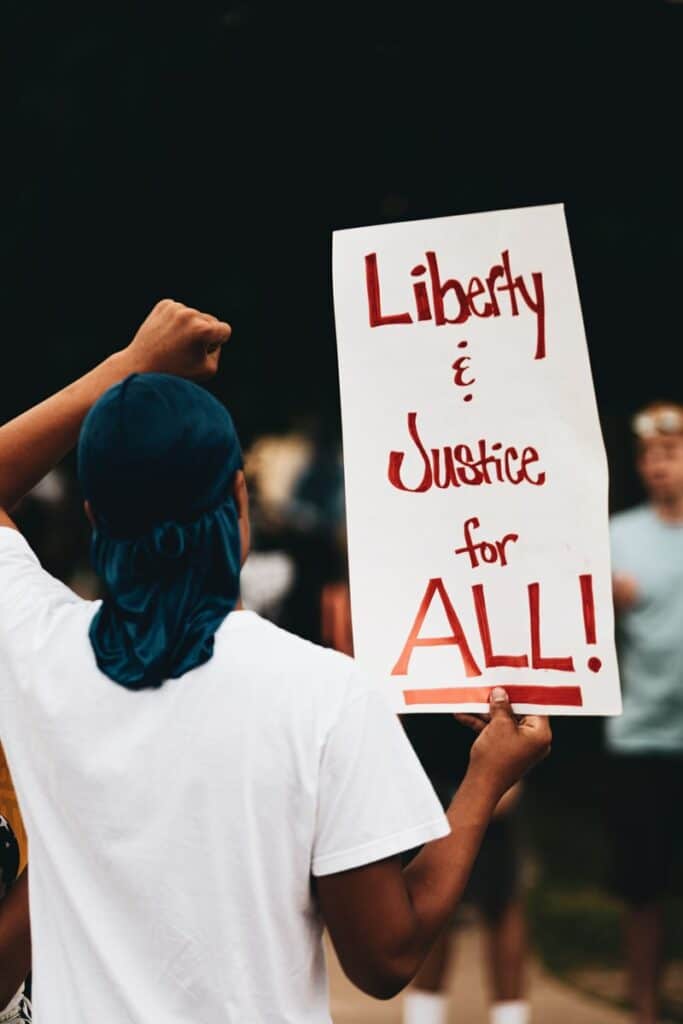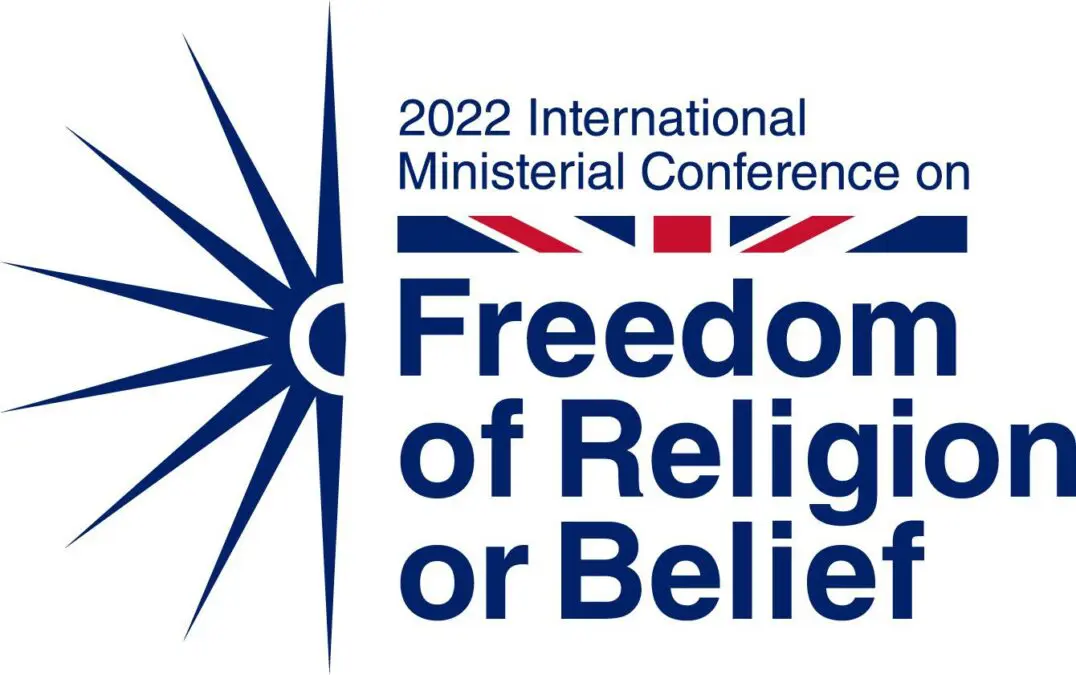2022 Ministerial Conference on FoRB (Freedom of Religion or Belief): London, July 5-6 – Is there a meaningful role for civil society? – Reportedly, no invitations were received by them at this writing.
In today’s world where communication and information are easily exchangeable, we can witness many examples of religious discrimination throughout the world. The Ministerial is an excellent opportunity to bring these issues to the forefront and address them in an open forum.
The fight of religionists throughout the ages has been a long and complex one where rights and privileges have long been afforded or denied according to the culture of the predominant peoples of an area. Sometimes this has been tolerant and sometimes brutally violent for those of different minority religious persuasions.

Why is it that a religion is so closely guarded by the heart, that a man will fight to the death for it; for the principle of practising one’s own religion; for not being subjected to the interpretation of another’s concept of godliness? And logically, why should we even fight over it, yet man does, often quite catastrophically so.
If we are beings that have existence beyond a body, then that clearly relegates the body to a lesser importance. It goes to the very identity of an individual, the core of self and what greater ultimate purpose and relationship one has in this universe. If one feels beholden to a greater agency more than the governments of man then is it justified for governments to impose that vision on others who do not behold it?
Most of us who have a genuine sense of God have one that is an all-encompassing vision that could not exclude others, regardless of their faith or none. Yet clearly not all have such a vision and others have a vision that leads to hate, discrimination and exclusion of those not of the same persuasion.
After thousands of years of society we have only relatively recently constructed a comprehensive quasi-legal frameworks in which to live and those frameworks are today embodied in the Universal Declaration of Human Rights, the European Convention on Human rights and the African Charter on Human and People’s Rights (the latter often ignored and not mentioned by more Westernised sources and likely a blind spot for the West’s imposition of it’s own culture through slavery and colonialism of the African continent).
The principles embodied in these Declarations and Conventions are undoubtedly the broadest that have been produced amongst all earlier civilisations. Certainly, many aspects of what we can call ‘humanity’ or care and respect for one another have been reflected and embodied in a great many cultures and religions but none have produced such an overview nor had the broad general agreement of most countries of the world, nor had the independence of reflecting a non-religious view of things yet upholding standards common to all.

But there is a long way to go from words to deeds and this is why this initiative called the Ministerial on Freedom of Religion or Belief is being held in London with Ministers, government representatives and civil society should be of great significance and importance to show that governments really mean business when it comes to ensuring religious equality for all. We have never had before, in our civilisations, such a determined and consistent (this being the 3rd conference) attempt to bring together government representatives responsible for religion together with the purpose of achieving parity for all religions.
Let us hope this is not wasted. With less than a month to go before the opening of the Ministerial the program is still quite vague on the “official part”, and the civil society aspect of the conference is somewhat in confusion. Nothing has been made public about who will be able to hold events in what is called the ‘Fringe floor’ – an area of the conference centre which is expected to be given to civil society.
Who has been granted the ‘right’ to exhibit and hold events there is a closely guarded secret, if indeed any final determinations have been made at all about it. For it is likely only a small part of civil society will be granted access to this area, and reportedly, nobody from civil society has still received the needed formal invitation, having as a consequence that some of those who will be invited, will not manage to find flights or hotels that they can book, or will book them ahead of time and lose their money because no invitation was received.
no invitations received […] some of those who will be invited, will not manage to find flights or hotels that they can book, or will book them ahead of time and lose their money because no invitation was received
Of course, groups are able to, and encouraged to hold events anywhere around the UK which would support their aims in achieving freedom or religion or belief, and this will certainly be done. But it is hardly likely that it will reach far into the members of the conference itself. The concern by many is that those ‘allowed in’ to the conference centre will be restricted to a ‘chosen few’ and whilst there are clearly security concerns to be taken into consideration it may lead to something of an Insiders Club excluding many who have views considered less correct or informative (though by what criteria this is to be determined is unknown) and so inhibit the reach towards the many government delegates who will be present, in order to not make it too uncomfortable for them.
This Ministerial is an excellent opportunity for open discussion and to develop ways in which to address the multitude of issues relating to religious freedom. Let us hope that the UK government will ensure that we do have an inclusive and open discussion about FORB and that all sectors of civil society are able to participate meaningfully.







